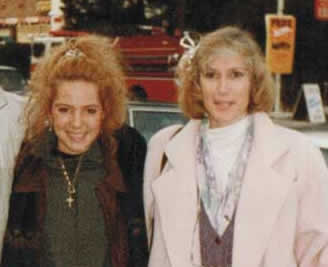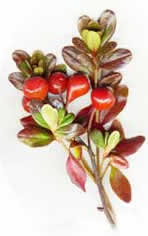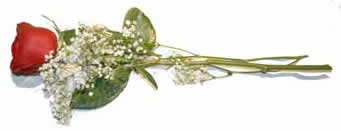

. . . . . . . . . . . . . . . . . . . . . . . . .
CAPE COD CHAPTER
OF HOLISTIC MOMS NETWORK
The Holistic Moms Network is dedicated to supporting parents who are interested in natural health and mindful parenting. The Cape Cod chapter holds monthly meetings at the Chatham Community Center on a variety of topics, including healthy food for our families, holistic education, and holistic health care. These meetings provide an opportunity for members and guests to network and get to know each other better. The group will soon announce its roster of speakers for the coming year. The meetings are open to all.
The Chatham Community Center
is located at
702 Main Street in Chatham.
For more information, contact
Lauren at 973-919-1646 or Jenny Wood at jenny@capecodacupuncture.com
. . . . . . . . . . . . . . . . . . . . . . . . .
The Year I Didn't Do Christmas continued:
She slid into our booth and laid her Christmas offering on the table before us. For me there was a wilted convenience store rose wrapped in heavy plastic. For my husband, there were five miniature peanut butter cups. I know we had a gift for her, probably a coat or sweater that would be lost or sold in a short time, which I would replace with another one to give me some solace when I woke up in the middle of the night with the vision of her huddled on a street corner. We talked as best we could, and pushed the food around our plates.
As we were leaving, before we stepped out into the cold, we paused in the vestibule by a vending machine full of stuffed animals. I hugged her close enough to feel her emaciated body through the layers of baggy clothes, and my mind flashed back to her childhood and my nightly ritual of tucking her in with her favorite toys. I wanted more than anything else in the world to go back to when she was a little girl, and I could carry her home to a warm, safe bed. Instead, before we parted we took a photo on the steps of the diner to prove we were all there and still alive.
For some time afterward, whenever I told the story about the rose and peanut butter cups, it was with a look-how-I-have-suffered-as-a-mother spin. Friends would talk about the lovely gifts they received from their thoughtful, not-at-risk daughters, and I would find myself measuring my situation against theirs, comparing my insides to their outsides, and it would inevitably lead me to picking up and wearing the badge of self-pity with a kind of perverse pride. The rose and peanut butter cups became symbols of my unresolved martyrdom.
Back then I thought, “Good mothers get nice gifts,” but now I see it differently. I understand that when you’re strung out, consumed by self-hatred, just trying to survive, the smallest act of kindness, like going into a Seven-Eleven on Christmas to pick up a rose on your way to meet your mother in a diner, is a momentous achievement, one that takes much more courage and humility than going to the mall.
Today I get beautiful, thoughtfully purchased and imaginatively wrapped, gifts from my daughter, but the sight of a convenience store rose still brings me to tears. It screams “I love you” much louder than the voice of any lingering regret I may feel for not doing Christmas, and it reminds me there are many ways to love.

Bev and her daughter Heather on the day described above
Beverly Ryle lives in North Eastham. She can be reached at bevryle@comcast.net
Please send comments to: comments@capewomenonline.com
. . . . . . . . . . . . . . . . . . . . . . . . .
P. O. Box 720, North Eastham, Cape Cod, MA 02651
Telephone: (508) 255-5084
© Copyright 2008 | All rights reserved

“Mom I have something
to tell you . . . ”
by Beverly Ryle

After completing her professional book, Ground Of Your Own Choosing, Beverly asked CWO if she could begin to share selections from the series of memoir essays she is writing about being the mother of addicted children. These essays will be collected to form the basis for her next book. The daughter she writes about will also be sharing the events from her perspective in later columns. Their purpose in sharing the intimate details of their journey as mother and daughter is to encourage others to do the same. Beverly can be reached at bevryle@comcast.net
IT TOOK ME QUITE A WHILE to understand that being a good mother is not dependent on how your children turn out. My long journey toward this realization began nineteen years ago in a grocery store in Middletown, Rhode Island. I was on my way to my niece’s home in Newport to take care of her two young sons while she gave birth to her third child.
The situation was more complicated than it seems. Technically my niece and I were no longer related. The year before, I had divorced her uncle after our twenty year marriage had collapsed under the weight of his alcoholism and my codependency. My four children, then in their teens, had suffered the consequences, and the guilt I felt over those consequences, which were only beginning to be manifest, was so overwhelming that looking back it amazes me I was able to continue drawing breath.
I had birthed my babies in quick succession and devoted my life to their care and nurturing. Now one of them, my youngest, was at risk of being thrown out of high school for experimenting with drugs, and the others were rebellious and out of control, or withdrawn and depressed. I felt like a complete failure as a mother. The only way I knew how to deal with the unrelenting feelings of fear, guilt and inadequacy was to keep busy, which was why I had agreed to baby-sit for my niece. As long as I could be doing something, anything at all, it would numb the ache in my chest and calm the churning in my gut where the unacknowledged feeling that something was terribly wrong had taken up residence.
But on the long car ride to Rhode Island, the things I was trying to run away from kept creeping back into my head, so I stopped at a grocery store to give myself the distraction of shopping. (I sometimes wonder how much of our country’s consumerism is driven by people’s need to take their mind off one thing or another.) I was standing in front of a paperback book display looking for something that might help me cope, a $12.95 short cut out of my misery. I don’t remember the author’s name or the title, but I do remember that the book I selected that day was a litany of all the worse-case scenarios that every mother fears, each introduced by the phrase, “Mom, I have something to tell you”: Mom, I’m pregnant, I’m gay, I have a sexually-transmitted disease, I’ve been arrested; etc. Scanning the table of contents, I felt a sense of relief. It was all so much worse than bad grades and a little pot. Maybe I wasn’t such a bad mother after all.
What I didn’t know, or even suspect, was that in time there would be nothing on the author’s list that I would not be told by one or the other of my children.
In the dark years that followed, my youngest daughter’s addiction would progress from marijuana to heroin, accompanied by anorexia, bulimia, depression, and sexual promiscuity. At the same time, my other three children would try to deal with the pain they had inherited by acting out in other ways—depression-induced suicide threats, car accidents resulting from substance use or emotional distress, abusive relationships, financial hardships, and near homelessness
Although I would not have wished the difficult life experiences my children have experienced on them, or myself, I know today they have taught me what being a good mother is really about—unconditional love as expressed by accepting your children exactly as they are.
Our culture glorifies the mothers whose children do well and feels sorry for the ones who are destroyed by their children’s fall into disgrace, but it hardly seems to notice the mothers who stay the course with their children, who get help for themselves so they can be whole and healthy role models, who move beyond the self-pity of how-could-this-have-happened-to-my-baby to a place where they understand that their children’s decisions aren’t about them, who are committed to leading rich and full lives even in the midst of chaos. The story of these “other mothers” is one that has not been told and there is a urgent need to begin telling it.
It needs to be shared to give hope and direction to the huge number of mothers of troubled children who hide, whose lives have come to a halt because of their pain and shame over their children’s choices. It needs be made visible to the young mothers today who I see taking the notion that they are defined by what their child becomes to a new and even more frightening level. These highly invested mothers have to be prepared for the possibility that the bottom can fall out before they discover that no amount of pre-natal reading, healthy snacks, designer clothes, or quality time will assure a successful child-rearing against genetics and cultural influences
Today my children continue to struggle and grow, and I know that I am a good mother, not because of how they have turned out, or because of what they have done or not done, or because we spend Christmas around the Norman Rockwell turkey. I know I am a good mother because I stay in the process of opening my heart to loving them where they are. I don’t do it perfectly but I keep doing it.
As a career counselor and business consultant, Beverly Ryle has been helping corporate professionals, business owners, and people-in-transition achieve their full potential for over 25 years. She lives in North Eastham.
www.successonyourownterms.com
. . . . . . . . . . . . . . . . . . . . . . . . .
This is the first in a series of memoir essays written by Beverly Ryle. She and her daughter Heather will share the intimate details of their relationship in the hope that their story might help other mothers and daughters.
The Year I Didn’t Do Christmas
"Lo, how a rose e’er blooming"

EVEN IN LEAN TIMES, I always made a big deal out of Christmas. In the early days of my marriage, we didn’t have a lot of money, and I learned to be creative, starting to knit and bake months ahead of time. One year when money was particularly tight I found some old school desks at the junkyard and refinished them and stocked them with art supplies. Like many young mothers, I often took on too much (fourteen varieties of Christmas cookies!), but I truly enjoyed doing these things, and I was very good at establishing family rituals which made the holiday special for my four children.
No one, especially me, would have ever believed that a time would come when I would not “do” Christmas, when Mom would say, “Not this year.” It still amazes me that I had the courage to break the unwritten commandment of motherhood, that no matter what’s going on, when it’s Christmas, you have to find a way to believe that everything is OK. Yet I know that my choice not to celebrate the holiday was an act of leadership within my family that defined a reality that everyone else had chosen to ignore.
Four days before Christmas, 1990, I got a call to come to the hospital. My youngest daughter, Heather, a heroin addict, had admitted herself to detox. As a parent in a twelve-step recovery program, I knew that this was both bad and good news. She was in serious trouble, but she was at least scared enough to get help.
Two days later, when she was somewhat coherent, Heather and I met with a intervention counselor. He advocated a long-term rehab, which I strongly endorsed, but Heather’s addiction had other ideas. Less than an hour after the hope of her getting clean and sober had been put on the table, I stood with her on the sidewalk outside the hospital entrance. We hugged each other, both scared, both knowing how close to the abyss she was, while we waited for her father, my ex-husband, to come pick her up and take her home with him where she would be able to drink and drug as much as she wanted. An opportunity for getting her help had been lost, and she was back out there again. And the worst of it was her siblings had aided and abetted her by convincing her father to take her in.
All I remember feeling as I made my way to my car in the hospital parking garage was the sense of being weak in the knees. The anger—at my ex-husband, my other children, Heather, even myself—didn’t come until little later. I had made a commitment to collect donations for the Salvation Army outside my local supermarket, and by the end of my shift, I had broken three bells, shook the clappers right out of them, even as I stood there warmly greeting friends and wishing strangers a Merry Christmas. It was the way I had always coped, smiling and telling the outside world I was fine, while being consumed by pain on the inside.
Yet even as despair was crashing over me like the storm surge of a hurricane, it never occurred to me to cancel Christmas. In fact, after turning in the broken bells, I went into the grocery store to pick up a few last minute items I needed for Christmas dinner. It was not until later that day when I met with my therapist for a emergency session that I realized I had a choice.
She began by pointing out that in the famous Norman Rockwell painting of the holiday meal, the one which millions of Americans, me included, try to recreate every year, there are no drug addicts around the table.
“How do you feel about entertaining under these circumstances?” she asked. “Do you really want to pretend nothing has happened, just for the sake of tradition?”
“You mean I could not do Christmas?” I said incredulously. In the car on the way home, I knew I couldn’t pretend everything was normal when my youngest child was at death’s door. I called her siblings as soon as I walked in the door so I wouldn’t lose my nerve, and I told them I was not doing Christmas. They were stunned. It obviously had an effect on them, because they were still making references to it years later.
Calling off Christmas gave me something that most people don’t have much of around the holiday—time. I spent a lot of it with a friend who had recently been admitted to the hospital with a serious medical condition. We talked, watched television, visited with volunteers and members of the clergy who had come to cheer up those who would not be home for Christmas. The physical suffering around me made the emotional suffering I was experiencing more manageable. I felt useful and part of a larger family.
It was a pleasant surprise that my parents, who had not understood the tough-love stance I had been taking with my daughter, rallied around me, joining me and my husband for a quiet dinner on Christmas day. I cried as we sat down at a much smaller than usual table, but I treasure the memory of the stories they told during and after the meal. These precious reminiscences would probably have been lost if everyone had been there.
I also saw Heather. We met Christmas morning at a diner, the only place in town that was open. She was late, as usual, and I waited nervously in the garish surroundings—only in a Greek diner can crystal chandeliers contribute to an aura of tackiness. After so many years in cozy living rooms with bulging socks hung on the mantle and packages carefully arranged under the tree, this was not where I had ever expected to spend Christmas morning, and I took in every detail—the randomly strewn tinsel, the reflections of colored lights from the metallic surfaces, the cheap figurine of Santa on top of the revolving dessert case filled with pies and extraordinarily tall cakes.
Then Heather arrived, and I forgot all that. All I saw was her disheveled appearance, her unwashed hair, her drawn face and dirty fingernails, the physical signs of the deterioration of a very beautiful young woman.
Continued in next column . . .